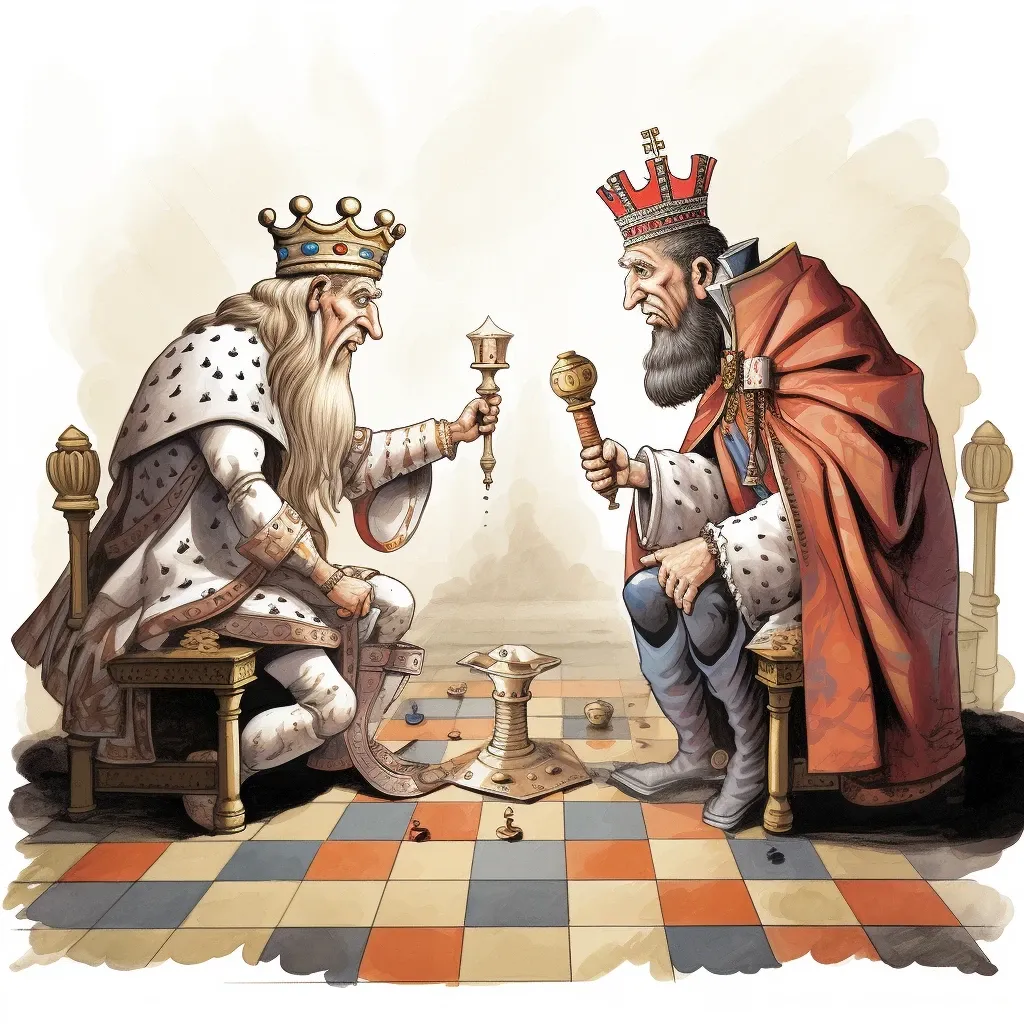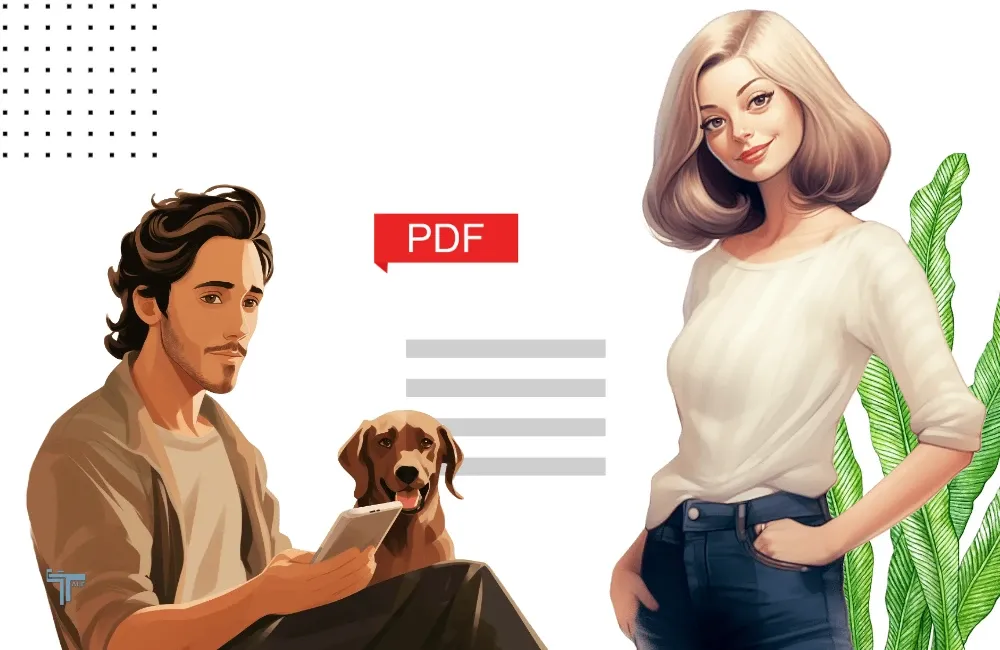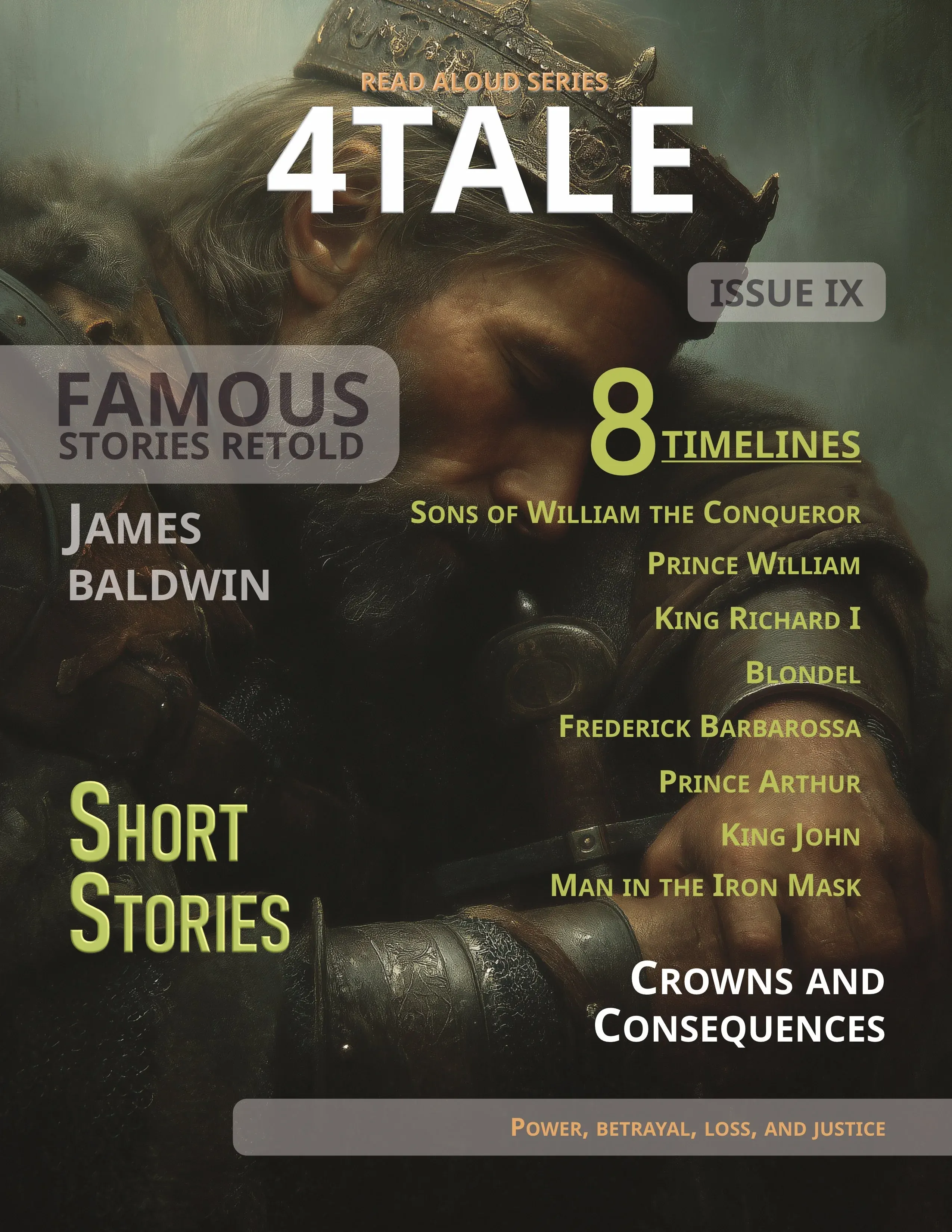BY JAMES BALDWIN
King John and the Abbot
Famous Stories Retold: Story 6 of 50

Heading

Challenge: King John posed three difficult questions to the abbot, threatening his life and wealth if he could not answer them.
Resolution: The abbot's shepherd, disguised as the abbot, cleverly answered the questions, saving the abbot and his wealth.
A good book we like, we explorers. That is our best amusement, and our best time killer
- Roald Amundsen, Explorer
A Tale of Power: King John and the Abbot in Medieval England
Immerse yourself in a tale of power and struggle from the medieval times of England, one featuring King John, known for his cruelty, and a rich old Abbot of Canterbury. Notorious for his harsh reign, King John's envy and power games with the Abbot weave an intriguing story that echoes through time. Learn how this narrative unfolds, the challenges the Abbot faces and the lengths he goes to save himself. This tale serves as a window into the power dynamics and societal norms of past epochs. Discover the unexpected twists and lessons that this historic power struggle has to offer.
The Tyranny of King John
King John, the monarch of England, was notorious for his tyranny. His rule was marked with harshness and cruelty, showing little regard for the welfare of his subjects. As long as his desires were fulfilled, the fate of others was of little concern. His reign is remembered as one of the darkest periods in England's history, earning him the dubious distinction of being the worst king the country ever had.
The Grand Lifestyle of the Abbot of Canterbury
In stark contrast to the king's ruthless rule, the Abbot of Canterbury lived a life of grandeur in a magnificent house known as the Abbey. Every day, he dined with a hundred noble men, and was waited upon by fifty brave knights donned in fine velvet and gold chains. His lifestyle was a testament to his wealth, but it was also a reflection of his generosity and hospitality. While the king oppressed his subjects, the abbot welcomed his friends and knights with open arms, providing them with comfort and warmth.
Podcast
King John's Envy and Threat to the Abbot
When King John came to know about the abbot's lavish lifestyle, resentment and envy took root in his heart. He felt threatened by the abbot's grandeur, viewing it as a direct challenge to his authority. In his mind, no man, regardless of his wealth or stature, should live a better life than the king. Blinded by his ego and envy, King John summoned the abbot and confronted him, even threatening to cut off his head and seize his riches.
The Impossible Questions Posed by King John
In a fit of jealousy and arrogance, King John challenged the humble abbot by posing three impossible questions. He demanded the frightened abbot to predict his lifespan, determine when he'd circle the world, and to guess his thoughts. These were not mere riddles; they were ultimatums designed to belittle the abbot and usurp his wealth. The king was using his power to put the abbot in an impossible situation, making the eventual seizure of the abbot's riches appear just.
These questions were not only difficult but also abused the king's power. The abbot, a man of religion and not a soothsayer, was left with no choice but to seek wisdom from the learned institutions of the land.

The Abbot's Quest for Answers: From Oxford to Cambridge
In hopes of finding answers to the king's impossible questions, the abbot embarked on a journey from the revered Oxford University to the esteemed Cambridge University. He believed that the wisdom of the professors at these universities could help him answer the king's queries.
Unfortunately, his search was in vain. Despite the wealth of knowledge possessed by the scholars in these institutions, none could provide satisfactory answers to the king's questions. It seemed like the abbot's fate was sealed, as none of the learned men could help him outwit the cunning King John.
The Unresolved Dilemma of the Abbot
The abbot's quest for answers was fruitless. The bright minds of Oxford and Cambridge could not help him solve the king's riddles. He was left in a state of despair, fearing the loss of his head and his lavish lifestyle. The abbot's dilemma remained unsolved, and his future uncertain.
King John's impossible questions had effectively cornered the abbot, leaving him with seemingly no escape. The abbot was caught in a web of uncertainty spun by the king's jealousy and greed. His fate was to be determined by the king's whims, proving King John's reign to be one of tyranny and injustice.
Conclusion
As we go deeper into the tale of King John and the Abbot, we witness a power struggle that reverberates through the annals of medieval England. We see a cruel King John, resentful of the Abbot's grandeur, and the Abbot, caught in the king's web of envy and threats. The Abbot's quest for answers leads him from Oxford to Cambridge, yet the riddle remains unsolved. This historic clash of power, laden with impossible questions and a desperate search for answers, offers us an intriguing insight into the societal norms of the times.





